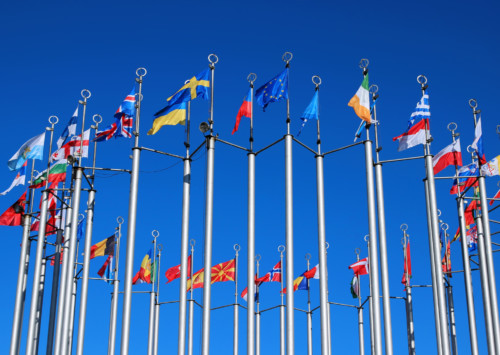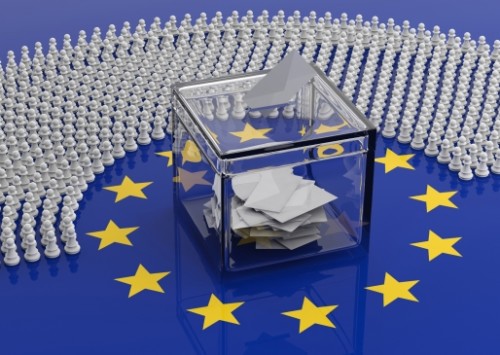Women in European Union

Germany’s Ursula von der Leyen became the first woman to be the president of the European Commission in 61 years of its history
One of the most progressive regions in the world, the European Union (EU) remains an under-performer in gender equality, despite a lot of discussion and some efforts.
The archetypal European Union (EU) backstage wheeling and dealing has again come to the forefront as the leaders of the EU member states struggled in Brussels last month to find an agreement on the nominees for key European posts.
Five of the most powerful European positions were up for grabs. The head of the European Council, the president of European Commission, the president of the European Parliament and the high representative for Foreign Policy, besides the head of the European Central Bank. After weeks of wrangling, the outcome of the nominations was rather surprising as none of the favourites seemed to have made it in the final list that was released last month after a nearly 72-hour negotiation to end the deadlock.
Almost all the nominees had to get approved by the European Parliament and the first feedback from MEPs was anything but positive. The nomination raised hackles aplenty as European leaders were again charged with a lack of transparency and accountability, indulging in backroom dealings that have led to the rise of anti-EU sentiment in many parts of the Union.
However, there was a positive element even in this outcome, the nomination of women candidates for two of the five key jobs. While Ursula von der Leyen became the first woman to be the president of the European Commission, in 61 years of its history, Christine Lagarde was elected as the president of the ECB. It is heartening to see that at last women occupying such key positions in the EU, but it also exposes the severity of gender gap that remains in perhaps the most progressive of the entire developed world. The EU has been progressive in several key aspects – social security, climate change, human rights and in raising the issue of gender balance.
However, in the last of this list, the EU seems to have been a serious laggard also, especially when it comes to giving women the keys to the key political and economic positions. Several key EU member states, with the except of Germany and the UK, have never had a woman leader. Women remain underrepresented in national parliaments as a recent report by the OECD showed.
Iceland topped the list with about 40 pc women MPs, while most of the EU biggies remained in 25-35 pc range, even though there are more women than men in most of these countries. Women do slightly better as members of the government as France and Spain lead the way with almost half the ministers being women, but several other EU countries remain way behind.
The situation is definitely far more acute in the company boardrooms where women remain remarkable by absence. A report of May 2019 encapsules the situation. Women occupy less than 30 pc of managerial positions and in no EU member state do women managers number over 50 pc. In the company boardrooms the contrast becomes starker. Only six percent of CEOs of large companies in the EU are women, while the share increases to 15 pc in the executive committees of companies that take key decisions. Women also make less money than men even in similar jobs. A report of earlier this year showed that the pay gap was rather high at 16 pc across the EU.
Progress of women in the corporate hierarchy remains stagnant despite several pieces of legislations, both by the European Commission and by national parliaments to make at least the large companies do more to remove this inequality. This is largely due to slow and low implementation of the norms. The EU needs to do more to create a greater awareness as well as try to tackle the social and religious hurdles that may be blocking the rise of women in the business world. These hurdles remain despite the fact that the EU has definitely been the leader in several social and economic measures to promote gender equality such as extended maternity leave and almost mandatory paternity leave to encourage fathers to take more responsibility of a child at home and allowing women to get back to work earlier. In many countries, laws protect the position and other benefits of women who have gone on maternity leaves. Yet all these measures seem to have been rather ineffective in helping a fair number of women rise in company hierarchies.
As a new European Parliament as well as new officials of the EU take charge, the time is right for a swift and widespread action to tackle the issue and ensure that not just in the large firms, but also in the SMEs, which account for almost 80 pc of the economy in most EU nations, and which employ far greater number of workers than the larger companies. The EU could do with more women entrepreneurs also in this age of start-ups through some positive discrimination measures.
The politicians also need to play ball. For long, the European Commission, with 27 commissioners, has been a predominantly male bastion. The EU leaders could show the way by appointing at least 13, if not 14, women commissioners to show their seriousness.
If EU succeeds in bridging the gender gap, it would be definitely very good for the 262 million women in the Union. More importantly, as with social security and maternity and paternity leaves, the EU often shows the way for other countries to adopt the best practices. Hence, they should perhaps take these steps for the 3.8 billion women across the globe.











